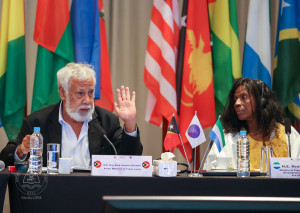On April 11th and 12th, Timor-Leste will host the 6th Ministerial Meeting of the g7+, which will bring together Ministers of Foreign Affairs and high-level representatives from the member countries of this intergovernmental group, founded in 2010 in the Timorese capital. The meeting marks 15 years since the establishment of the g7+. It represents a moment to take stock and define a new strategic direction for promoting peace, resilience and cooperation between countries affected by conflict. 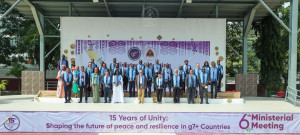
At the opening ceremony, the Minister of Foreign Affairs and Cooperation of Timor-Leste, Bendito dos Santos Freitas, emphasised that the g7+ “has emerged as a powerful voice for fragile and conflict-affected states”, promoting “country-led solutions, mutual learning and solidarity”.
The head of Timorese diplomacy expressed his gratitude for the foreign delegations’ presence. He highlighted Timor-Leste’s journey as a testimony that “fragility does not define us”, stating that what defines the member countries is “our determination, our hope and our commitment to building a better future for our peoples”. 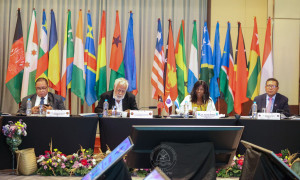
The event also featured a speech by the President of the Republic, José Ramos-Horta, who recalled the context in which the group was created and Timor-Leste’s difficulties and challenges in the “struggle for stability”. “Despite this painful history, we have chosen a different path – not revenge, but reconciliation, dialogue and national unity”. “We realise that for peace to be lasting, it must be led by those who lived through the war – and not imposed from outside”, he said.
The Head of State emphasised the need, “as we look to the future, to reaffirm our commitment to three fundamental objectives” – firstly, “to continue to collectively advocate reforms in international institutions”, secondly, “to strengthen our solidarity – because that is the true strength of the g7+” and “to promote national ownership in all aspects of peace and development”. 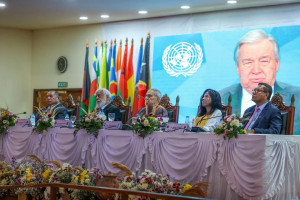
In his speech, Prime Minister Kay Rala Xanana Gusmão recalled the early days of the g7+, when “the group was not yet formally recognised” and “Timor-Leste was the youngest country in the world”. Fifteen years later, he said, the g7+ has become “a structured platform, with observer status at the UN and a recognised impact on international politics”.
The Head of Government defended the need for the group to “take control of its destiny”, presenting four concrete proposals: promoting “national dialogue and reconciliation as the only sustainable path to conflict resolution”, strengthening “peer-to-peer learning”, valuing fragile countries as “equal partners in shared prosperity and as a bridge to a more peaceful world” and mobilising “political capital and investment in strengthening our collective cause” to form “a bloc for peace”. 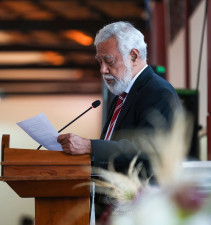
The meeting will take place at the Dili Convention Centre. It will be attended by representatives of all the g7+ member countries, development partners and international organisations, including the United Nations Under-Secretary-General for Peacebuilding Support, Elizabeth Spehar. Over the two days, participants will review the milestones achieved since the group was founded, adopt a new framework for strategic cooperation and elect the new g7+ presidency.
Founded in 2010, the g7+ is a coalition of countries affected by conflict and fragility that advocates inclusive, state-led approaches to peacebuilding, development, and resilience. Timor-Leste, the host country and founding member, reaffirms with this meeting its commitment to multilateral diplomacy and strengthening developing countries’ voices on the global stage. 